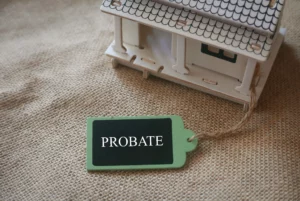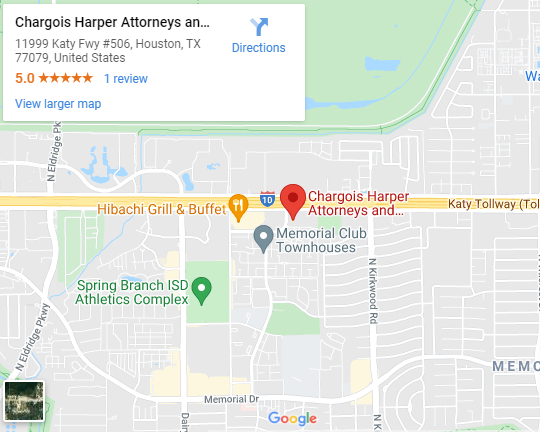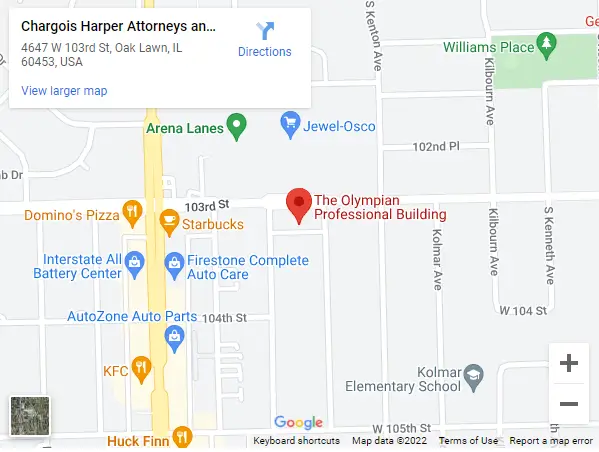When is it necessary to probate an estate?
When someone dies, some of their estates must go through the probate process. This is true whether or not the deceased had a well-prepared estate plan. Probate is a process by which the courts legally recognize a deceased person’s death, settle their outstanding debts, and distribute remaining assets to their beneficiaries and heir.
Not every estate is subject to probate. It is important to know whether a probate is required following the death of an individual. The probate process may take a long time to finalize. The more complex or contested the estate is, the more time it will take to settle and distribute the assets. Because probate can be very complicated, it is highly advisable to seek legal help from a seasoned Houston TX estate planning lawyer to assist you with your probate and estate administration needs.
This article gives you an overview of the different situations under which an estate must go through the Texas probate process.
- The Decedent Has a Valid Will
- The Decedent Didn’t Have a Valid Will
- Assets Owned as a Tenant in Common
- Assets Owned in the Decedent’s Sole Name
- Predeceased Beneficiaries or No Designated Beneficiaries
The Decedent Has a Valid Will
 If a person dies and leaves a last will and testament, then probate is required to implement the provisions of that will. However, not all wills require lengthy and complicated probate proceedings. Most states have a way to simplify or skip probate when dealing with very small estates. The probate proceeding depends upon the size of the estate at death, probate law, state law, and whether someone is willing to act as executor of the estate.
If a person dies and leaves a last will and testament, then probate is required to implement the provisions of that will. However, not all wills require lengthy and complicated probate proceedings. Most states have a way to simplify or skip probate when dealing with very small estates. The probate proceeding depends upon the size of the estate at death, probate law, state law, and whether someone is willing to act as executor of the estate.
When a testator dies, the executor is responsible for filing the will and initiating the probate process. States can have different rules for the timeframe in which a will must be filed after death. Generally, after a last will and testament are filed, the probate process begins to:
Distribute assets
Probate administration is the analysis and management of estate assets previously owned by a deceased person. Probate gathers, values, and distributes the property and also initiates the legal transfer of title to that property. When the property owner dies, their assets are commonly reviewed by a probate court. This court provides the final ruling on the division and distribution of probate assets to beneficiaries.
Pay valid debts
When someone dies but still has bills to pay and mortgage payments to make, these debts must be paid from the deceased person’s assets before any remaining assets are given to beneficiaries. The executor or beneficiaries of the estate may question the validity of bills submitted by creditors for payment by the estate. Make sure that the creditors have sufficient documentation to support their claim that money is owed.
Transfer relevant probate assets
Essentially, the probate process allows for the transfer of the legal title of assets to the decedent’s heirs, after the payment of the decedent’s creditors and other expenses. Probate determines the value of the assets held in the decedent’s name. The personal representative or executor assesses the value of the property and manages its distribution to heirs.
Clear up any contest of the will
If a family member or a beneficiary is unhappy with the last will and testament of the deceased, disputes may arise. He or she may challenge the will in the probate court. A will can be contested due to the following reasons:
- Forgery
- Lack of competency when the testator drafted the will
- Fraud, coercion, or undue influence
- Problems with the will such as lack of witnesses or lack of notary
The Decedent Didn’t Have a Valid Will
If a person dies without a will, the probate process for the decedent’s estate includes distributing the assets according to the state intestacy law (law of inheritance). Similar to the probate process with a will, a personal representative will also be appointed by the probate court judge to complete the probate process but with the additional step of determining the heirs. A qualified Houston probate attorney can help you understand the Texas probate process without a will.
Assets Owned as a Tenant in Common
Assets that fall under the tenants-in-common category are also subject to probate. This is when two or more individuals own a designated portion of a single asset.
In cases where properties are titled as tenants in common, and where clear instructions aren’t present in a will, a probate court will step in to help determine how the assets will be passed down. The decedent’s tenant in common share will need to be probated to get it out of the decedent’s name and transferred into the names of the decedent’s beneficiaries.
Assets Owned in the Decedent’s Sole Name
Any property or assets with only the decedent’s name on the title at the time of death must go through probate. This includes all property titled in the decedent’s sole name without co-owners or payable-on-death and beneficiary designations. Only the probate court can change these titles according to the specifications laid out in the decedent’s will. For instance, bank accounts, investment accounts, stocks, bonds, vehicles, business interests, and real estate owned solely by the decedent cannot bypass probate.
Predeceased Beneficiaries or No Designated Beneficiaries
Even assets with the beneficiary or payable-on-death designations must undergo a probate process if the beneficiary dies before the owner. If the decedent fails to update the will, the courts will become involved in deciding how to settle this part of the estate.
These assets might include health savings or medical savings accounts, life estates in property, life insurance policies, retirement accounts including IRAs and 401(k)s, and annuities.
The Role of an Experienced Houston Estate Planning Attorney
Navigating through the probate process is not easy as it may seem. It requires you to know your state’s specific probate rules and procedures. Not only is the process of probate complicated, but sometimes just determining if an estate needs to go through that process is complex.
If you’re unsure whether the estate requires probate, you can seek legal advice from our competent Houston estate planning attorneys at Chargois Harper Attorneys and Counselors At Law. Our estate planning law firm can advise you on your next steps to protect yourself and your assets according to Texas probate law. We can help with the probate process including assisting an executor in fulfilling their responsibilities and providing guidance when a will is contested or when there is a dispute between beneficiaries or heirs.
Contact us now and schedule an initial consultation with our law firm.
Visit Us:

You can count on us to protect your interests and resolve your legal concerns in Texas & Illinois.
Facing legal family disputes in Texas?
Dealing with legal disputes can be complicated and overwhelming, especially when it can affect you and your family, but you don't have to face it alone. Whether it's divorce, child support, custody and visitation, or guardianship, our Houston family law attorneys at Chargois Harper have the knowledge, experience, and compassion to help you through your family law case.
Houston Office
11999 Katy Freeway #506
Houston, TX 77079
Illinois Office
4647 W. 103rd Street, Oak Lawn Illinois 60453
Get Help From Our Illinois & Texas Attorneys
All the information on this website – www.chargoisharper.com – is published in good faith and for general information purposes only. Chargois Harper Attorneys and Counselors at Law does not make any warranties about the completeness, reliability and accuracy of this information. Any action you take upon the information you find on this website (Chargois Harper Attorneys and Counselors at Law), is strictly at your own risk. Chargois Harper Attorneys and Counselors at Law will not be liable for any losses and/or damages in connection with the use of our website.
Copyright © 2024 Chargois Harper Attorneys and Counselors at Law - All Rights Reserved. | Powered by Advantage Attorney Marketing & Cloud Solutions




